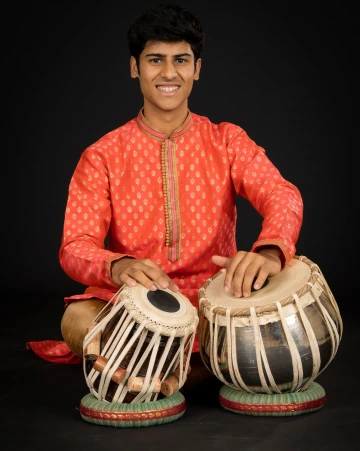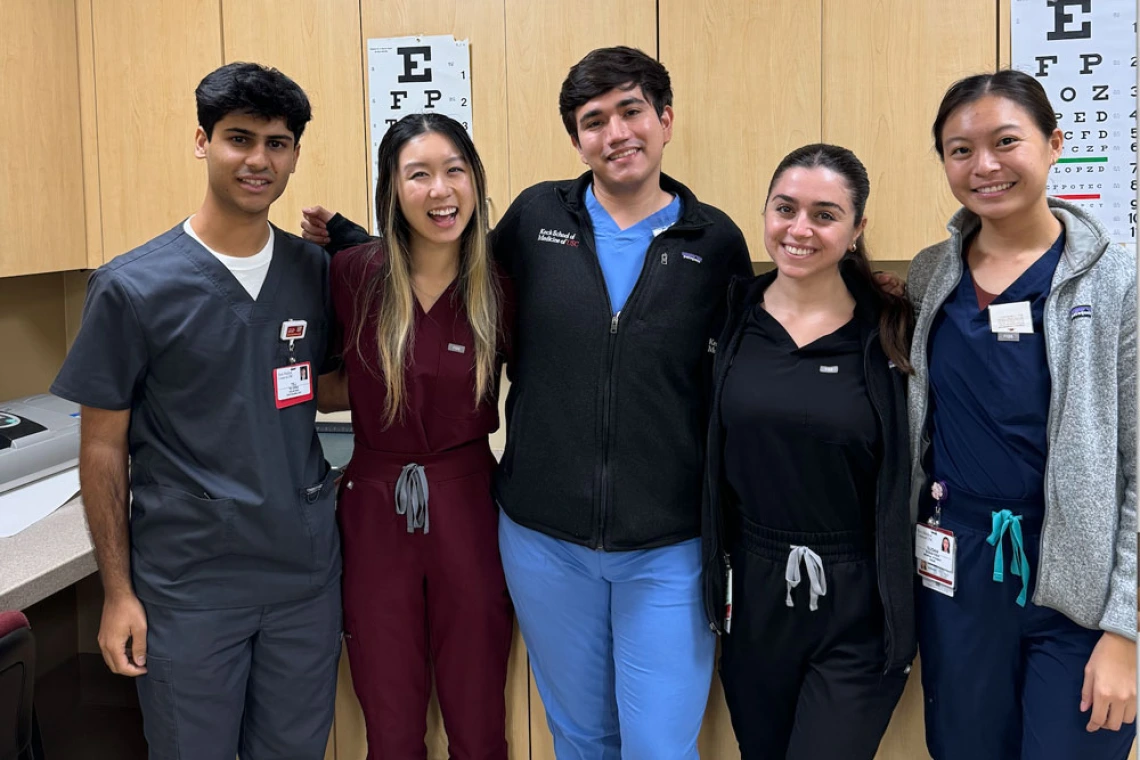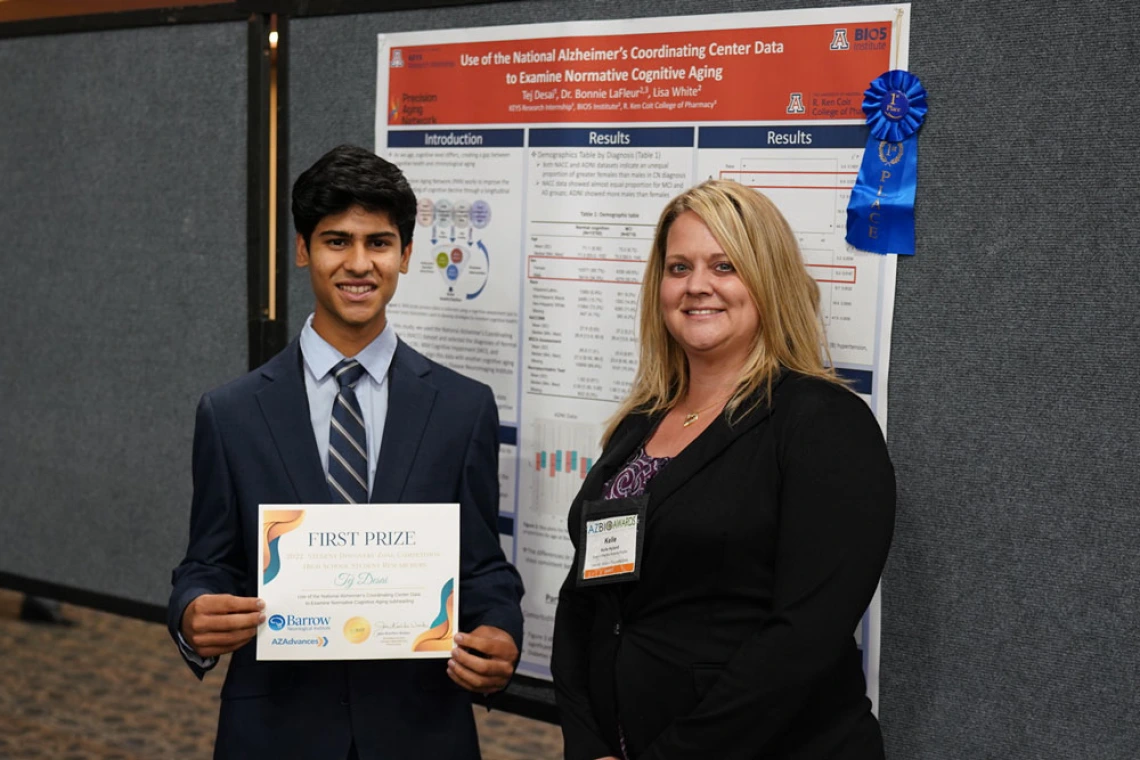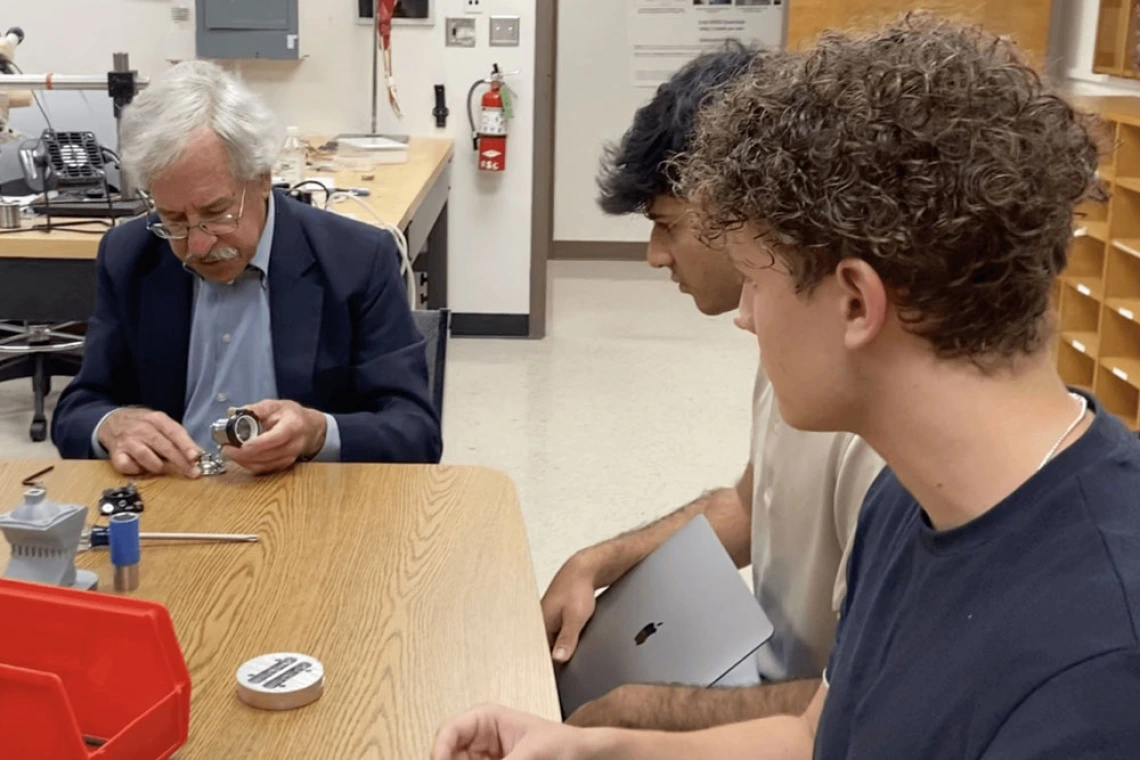Data science and medical innovation: Tej Desai (KEYS ‘22)
Phoenix-born Tej Desai grew his computational skills during the KEYS Research Internship to help him advance his goals of working at the intersection of medicine and innovation.

The KEYS Research Internship helped Tej Desai, 2022 KEYS Class, explore his interest in computational science as a virtual student placed in a biostatistics lab at the University of Arizona R. Ken Coit College of Pharmacy.
What do Indian hand drums and computational science have in common?
Both are passions of Tej Desai. Now a sophomore at the University of Southern California (USC) majoring in human biology with minors in business entrepreneurship and health innovation, Desai developed computer literacy and data science skills as an online intern for the BIO5 Institute’s KEYS Research Internship.
“One of the biggest impacts of the KEYS Research Internship was learning to work at a professional level,” said Desai. “As a high school student, I learned how to talk to faculty and discuss high-level research with them.”
When he is not playing music, Desai conducts research on cognitive aging and works toward medical school with aspirations to be a physician entrepreneur.

Tej Desai balances his studies in medicine and business with music - he has played tabla, the northern Indian hand drums, since he was 8 years old.
Initial impressions and computational research
Desai was a student at Paradise Valley High School in Phoenix and needed an internship as part of the Center for Research, Engineering, Science and Technology (CREST) program. At the recommendation of the school’s internship coordinator, he applied to KEYS.
His initial impression was one of warmth and welcome. From the acceptance email, to working with staff on his lab placement, to the very first online meeting with the other KEYS interns.

Desai (upper left) was part of the virtual cohort for the 2022 KEYS Research Internship.
“I felt so supported, even as a virtual KEYS intern, and that continued through every day of the internship,” said Desai.
Intrigued by computational science, Desai was placed with Bonnie LaFleur, research professor in the R. Ken Coit College of Pharmacy. LaFleur and her lab develop statistical techniques to analyze biomarkers in different populations to improve patient outcomes, from immunobiology and aging to cancer. These biomarkers can be used to intervene on the disease process early and delay progression or optimize treatments.
“One of my favorite parts of the internship were the weekly mentor sessions where I had direct instruction with Dr. LaFleur,” said Desai. “This was my first research experience, and the fact that I was able to learn step-by-step techniques helped me develop confidence in my scientific ability.”
For his internship project, Desai evaluated participant data from two major Alzheimer’s disease studies with the overall objective to identify patterns in cognitive decline and better understand the impact of hypertension, stroke, diabetes in relation to cognitive aging.
“In addition to the very interesting statistical results garnered during his internship, Tej demonstrated a level of scientific curiosity and teamwork that made the summer a wonderful experience for all of us involved,” said LaFleur, also a member of the BIO5 Institute.
From online intern to aspiring medical student
His research during the KEYS was a stepping stone into his current undergraduate research at the Roski Eye Institute at the USC Keck Medical Center, where Desai continues to study cognitive aging. He currently studies retina scans to better understand blood vessel health and flow as it relates to aging.

Tej Desai (far left) conducts vision screening with the medical students at the Roski Eye Institute at the Keck Medical Center.
“My experience in my biostatistics lab during KEYS put me in a stronger position for collegiate-level research,” said Desai. “In many of the internship positions that I’ve had since KEYS, it’s been crucial that I understand image analysis and statistical data.”
Desai recalls how his experience as an online KEYS intern also led him to achieve top accolades at the AZBio Awards, an annual event by the Arizona Bioindustry Association in Phoenix that provides a platform for aspiring innovators to share their research.
Desai recalls how unsure he felt about submitting his poster to the competition. Upon selection, he presented to dozens of the industry professionals at the event, and ended up winning first place in the high school research category.

Tej Desai (left) placed first in the high school research category for his KEYS project at the 2022 AZBio Awards, an annual event by the Arizona Bioindustry Association in Phoenix.
“It was amazing - the mayor of Phoenix even presented the award to me,” said Desai. “It goes to show that you never know what can happen when you take advantage of the opportunities that KEYS offers.”
Besides research, Desai is involved in multiple clubs, including Blueprints for Pangea, that coordinates medical reallocation supply for local hospitals and clinics in Los Angeles as well as abroad in the Philippines and Vietnam. Fostering his interest in innovation, he is a member of a medical device startup incubator, MEDesign, working on developing a lower limb prosthetic for pediatric patients with amputations below the knee.

Tej Desai (center) fosters his interest in innovation at the student organization MEDesign, a medical device startup incubator, while in college.
“Even though it’s been a couple years since the internship, I’m still grateful to this day for that summer of research experience,” said Desai. “KEYS provided the foundation for so many of my involvements I have today.”
As Desai plans to attend medical school, he is excited to continue computational research and eventually find his own way to bring innovation to the clinical aspect of medicine.

